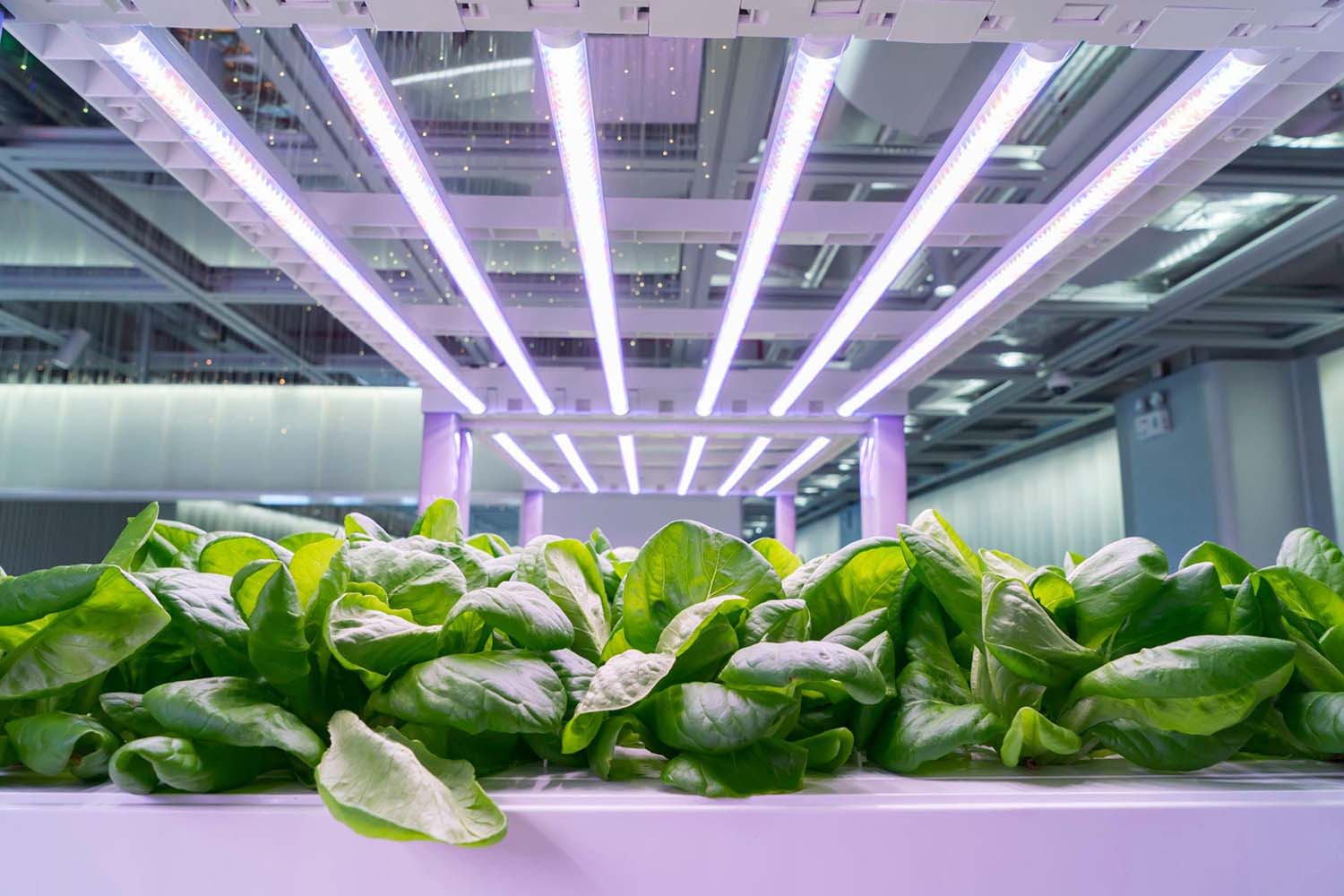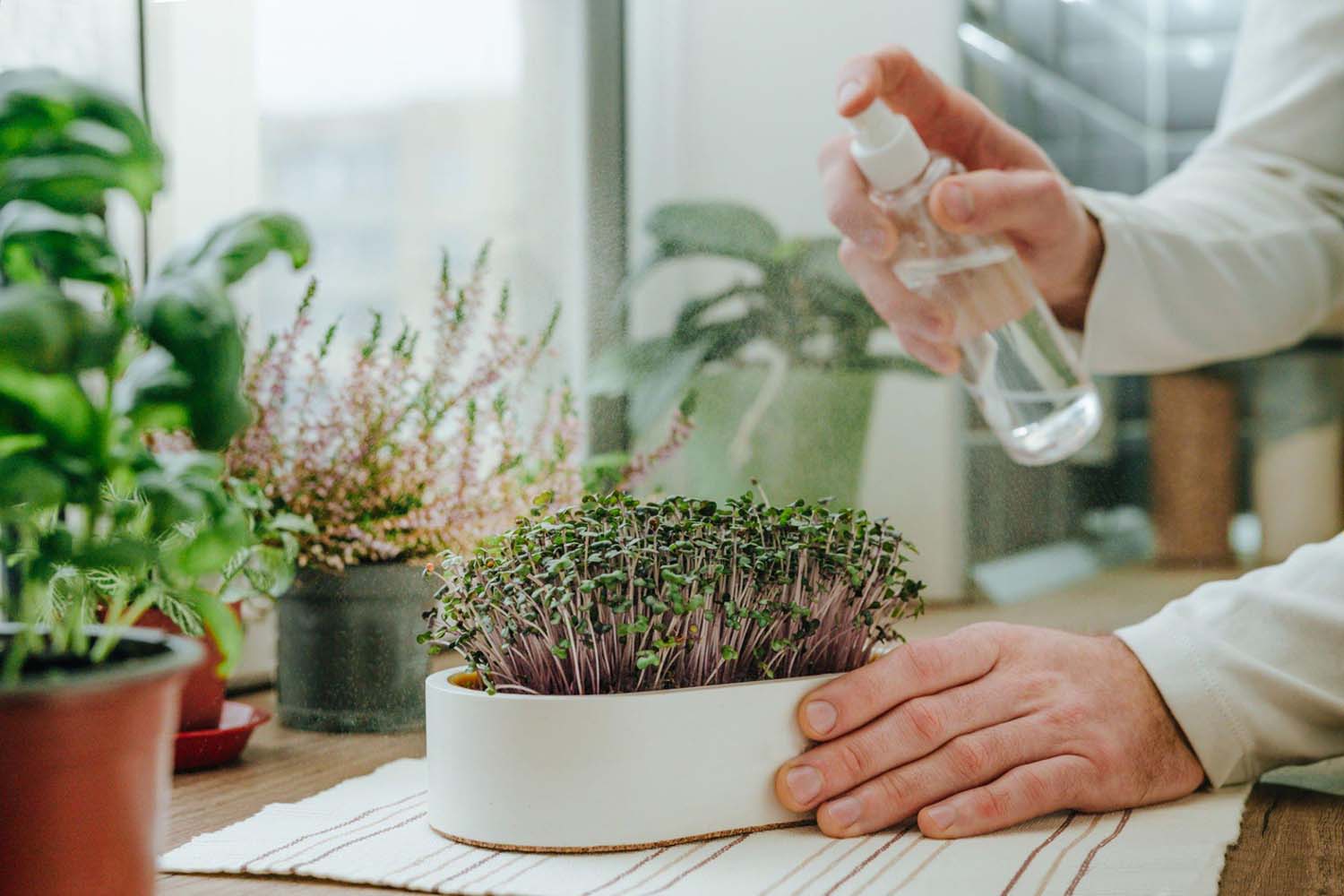How can you grow healthy plants hydroponically? While it can be tricky getting started with your first indoor plant growing system, you can grow healthy hydroponic plants with the right tricks and tips.
A hydroponic indoor plant growing system involves growing plants in the absence of soil. Instead of using soil, plants are anchored using a growing media like coco coir, perlite or gravel. Hydroponic gardening is the latest and most exciting industry that provides numerous benefits to homeowners.
There is no need to fight weeds and diseases in your smart garden since the soil isn’t one of the requirements. Also, a hydroponic plant growing system creates a microenvironment that isn’t ideal for pests and plant diseases. However, they sometimes occur.
A well-managed indoor plant growing system provides you with healthy plants. With that in mind, here are expert, proven tips and tricks that you can use to grow healthy plants, whether herbs, veggies or fruits.

Understand Your Water
Since soil isn’t one of the requirements in an indoor plant growing system, it’s advisable to use pure water. It’s worth paying for laboratory analysis to know the composition if you’re using tap or rainwater.
Poor water quality can lead to an array of deficiency and toxicity problems in your indoor hydroponics plant growing system. You should take great care, especially at the start of your plants’ life cycles.
If you’re using community or public water, it could contain elements such as sulphates, chlorine and magnesium bicarbonates, as well as calcium which will affect nutrient absorption and the potential Hydrogen (pH).
These elements are added to water to make it ideal for human use. You’ll only raise healthy hydroponic plants if you understand the composition of the water you’re using.
Invest in High-Quality Equipment
The benefits of growing hydroponic plants are numerous. However, you’ll need to prepare yourself for the initial and maintenance costs. You’ll only raise healthy plants if you purchase high-quality equipment and take good care. The equipment you require for fruitful hydroponic gardening includes the following:
– Nutrient Solutions: You will require mathematically formulated solutions to give your plants enough nutrients.
– PH Testing Kits: You need to test the acidity level of your hydroponics water in the reservoir tank to ensure it remains optimal for healthy plants.
– Aeration Fans: The water in the reservoir tank needs to stay aerated, and that is where aeration fans become important. If your water isn’t well aerated, it’ll stagnate, becoming toxic to your plants’ roots.
– Air Pumps: Oxygen is an important indoor plant growing system element. For plants to stay healthy, their root zones must be oxygenated.
– Grow Lights: Your plants require enough light to thrive. And since you’re growing them indoors, you need grow lights.
– Reservoir Tanks: Reservoir tanks are responsible for holding water and nutrient solutions. Without enough water and nutrients, your plants can’t grow healthy.
Also, you’ll need to invest in high-quality growing media. Organic materials are, in most cases, used for this purpose. On top of that, you need to remember that you aren’t an indoor plant growing system expert, meaning you must pay someone to check it regularly to ensure it’s working excellently.
You’ll also need to invest in new equipment depending on how successful your gardening is, especially when you’re expanding. These things will cost you a reasonable amount of cash, especially if you’re just starting with hydroponics to grow healthy food.

Balanced Nutrients
Ensure you’re excellently acquainted with the minerals and nutrients you have settled on. A sure bet here is to stick to the manufacturer’s recommended amount. Anything more or less will significantly affect the health of your hydroponic plants. Do it in small amounts when adding nutrients until you attain the recommended dosage.
Doing so allows the nutrients to mix completely into the reservoir to enable your plants to absorb the right amount at a given time. If you dump everything at once, you risk obtaining precipitation, which can affect your plants.
Also, you need to take note of the nutrient manufacturer’s scale. Always adjust your EC metre to the exact scale of your nutrient manufacturer so that you can obtain accurate readings. Sometimes, you may need to use nutrients from different providers. If that is the case, you must calculate your nutrient doses carefully to eliminate under or over-feeding your hydroponic plants.
Consider Environmental Factors
The health of your plants depends on environmental factors. Your plants only need to access enough of everything, whether nutrients, temperature or humidity. If one isn’t working as required, it can easily affect other factors. Major environmental factors to keep an eye on include the following:
– Temperature: Your grow room’s atmosphere is equally as vital as the grow light you choose for your hydroponics plants. Indoor plants can still grow without enough light but in the right atmosphere. However, they cannot grow in high-quality light and an improper atmosphere.
– Relative Humidity: Relative humidity is the amount of moisture available in the air at a given temperature and time, compared to the moisture amount the air could manage to hold at that particular temperature and period. A lower relative humidity makes plants absorb more nutrients since enough moisture isn’t available to be taken through the leaves. This could easily result in nutrient burn. Your plants’ leaves will appear wilted with blackened edges. And if the relative humidity is too high, mildew and mould could thrive.
– Temperature: Optimum temperature is ideal for healthy plants. Younger hydroponic plants with developing root systems need higher temperatures. Higher temperatures allow them to absorb enough moisture in the air. If you maintain an ideal temperature range, it can help minimise the risk of mildew and mould build-up. To raise healthy plants, ensure your temperature doesn’t fluctuate between night and day cycles.
If you follow these expert, proven tips, you’ll be well on your journey to raising healthy hydroponic plants. With healthy plants, the production of fresh food in your home increases. Be su








